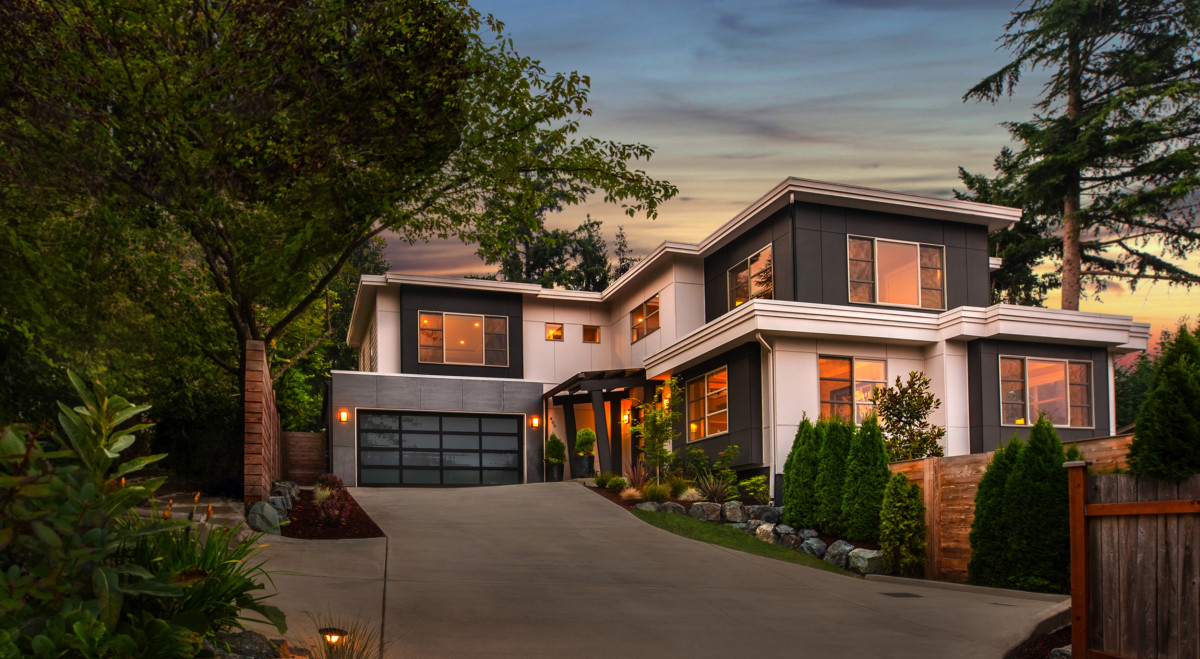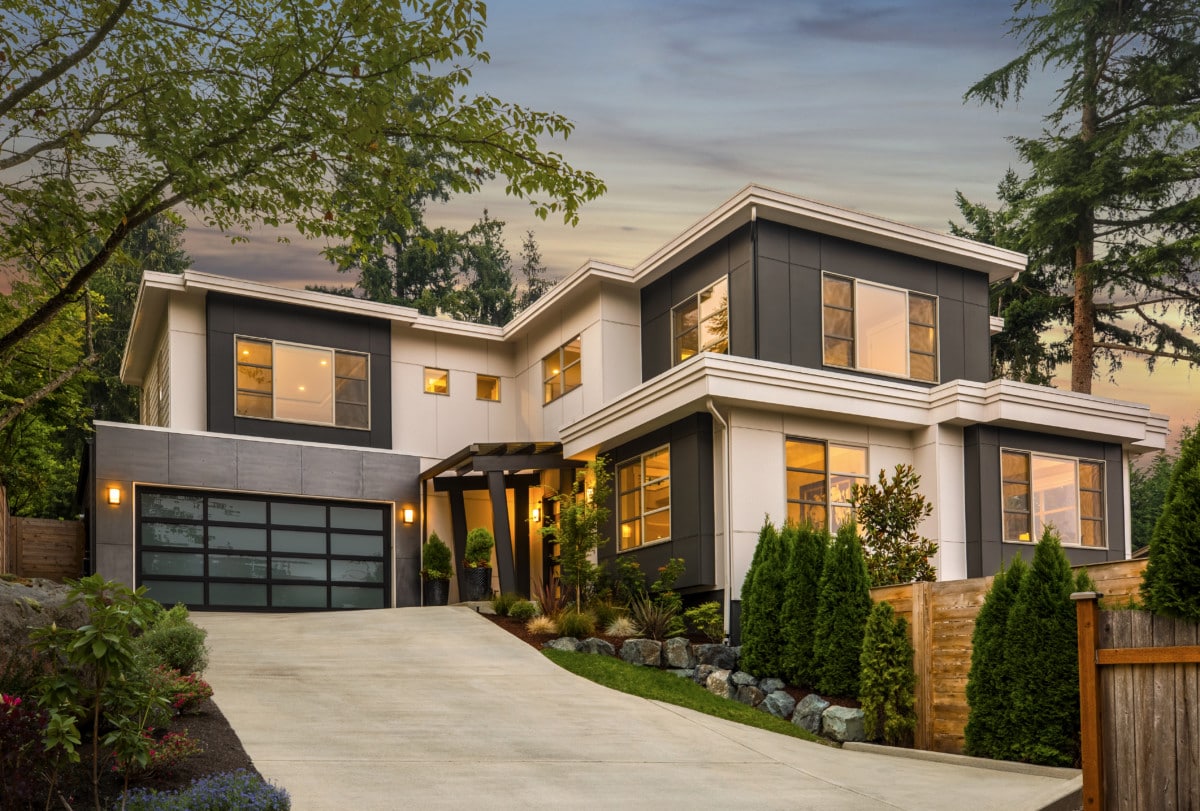As a first-time homebuyer, it’s natural to feel overwhelmed before you even begin your home-buying journey. This is a new process, and there’s a lot you may not know. With mortgage rates now dropping, it’s a great time to start asking the right questions. Remember, there are no silly questions at any stage of the homebuying process. You owe it to yourself to gather all the information you can, especially since buying a home will likely be the biggest investment you ever make.
As more potential buyers enter the market to take advantage of the decreasing rates, being well-prepared is more important than ever. To help you navigate this process, we’ve created a list of 68 questions to ask when buying a house, broken down into each stage of the homebuying process.

10 questions to ask before you go house hunting
As you well know, buying a house is a significant investment. Before you start house hunting, think through your goals for homeownership. Why do you want to buy a house?
- Do you want to earn equity and build wealth by owning a house?
- Do you expect you might need more space for a future family?
- Do you have a pet or see one in your future and you want a backyard?
- Do you want to live in a quiet, established area or somewhere more lively?
- Do you enjoy yard work or gardening? How much backyard space do you require?
- Have you considered the local schools and neighborhoods?
- Is it essential for you to live close to your work? Or, is a commute ok?
- Have you narrowed down a range of purchase prices you can afford?
- How much money do you need for a down payment?
- Are you pre-approved for a mortgage?
When you’re wrapped up in the excitement of house hunting, you may forget which questions to ask when buying a house. If you are a pet owner looking at condos, you’ll have to be sure the homeowners’ association allows pets. Or, let’s say you want to live in a popular downtown neighborhood, but plan to have children in a few years – will this neighborhood still suit your needs? It’s always worth giving some thought to the type of home and area to help focus your search.
Also, be aware that being approved for a home loan saves time for everyone by ensuring that you, as the buyer, can actually afford the home and can make a serious offer. If you had a pre-approval before and either paused your home search or have been searching for an extended period of time, remember that pre-approvals are typically valid for 60 to 90 days. Given the recent drop in mortgage rates, updating your pre-approval could strengthen your position in a competitive market, as it may allow you to qualify for a higher loan amount or better terms.
7 questions to ask when you interview agents
Contacting the agent listed on the for-sale sign of a house you’re interested in may not be the best way to protect your interest as a buyer. When you work with your own agent, that agent’s job is to represent your interests. They help research the house, find answers to all of your questions, and serve as your professional intermediary for communicating with the seller’s agent and homeowner.
Naturally, you will want to choose a great real estate agent that you are comfortable with and feel like they have your best interests in mind. Most real estate experts recommend that you interview at least three agents identified by recommendations from friends and family who have bought or sold a house recently, or identifying highly-rated agents that serve the area you’re interested in. Here are some questions to ask potential agents to see if they are the right agent for you.
- How long have you been a real estate agent?
- What kind of experience do you have in this specific market/area?
- Do you usually work with buyers or sellers?
- How do you usually communicate with clients? What should I expect for response time?
- How will you help me search for homes?
- What days and times are you typically available for showings?
- How will you ensure transparency about any issues you see with a house?
When you set your expectations for communication, home tours, and other information you count on your agent to provide, you have a good chance to establish a productive relationship from the start – which will help you through your homebuying journey.

39 questions to ask when looking at a house
This is an extensive list, and not every question applies to every situation. For example, if your goal is to purchase a single-family home, questions relating to condominiums don’t apply. However, this list of questions to ask when touring a house should give you an excellent start in making well-informed decisions when buying your first home.
- What’s the reason for the sale? How long have the sellers lived there?
- How long has the house been on the market?
- What is the neighborhood like?
- When was the house built?
- What are the property taxes?
- Are there any upcoming condo or homeowners association fees?
- What are the average utility costs?
- Have there been any major repairs to the property? If so, do you know if they provided a warranty?
- Are there any boundary disputes with neighbors?
- Are there any shared driveways or communal spaces?
- Are there any public rights of way passing through – or near – the property?
- How old are the major appliances and systems?
- Are the appliances included in the sale?
- What is the sales history of this house, and how would it affect my offer?
- Is there enough storage space? Room to grow?
- Is there any evidence of water problems? Can you see damp drywall, basement floors, or open leaks? Can you smell mildew? Or is there a smell of fresh paint that might be intended to cover up a water issue?
- Are the walls structurally sound? Look for cracks and look for evidence of cracks covered over by wallpaper that doesn’t look right or paint applied over filler.
- Is the chimney in good condition?
- Are the windows sound? Will any of the glazing need to be replaced?
- Do the ground floor windows have working latches to lock the windows?
- Is the attic insulated? If so, when was the insulation installed?
- Is there any soundproofing in the house? (Try viewing the home at different times to hear road noise or neighbors.)
- Are there working smoke alarms and carbon monoxide alarms?
- Is there adequate cell phone reception indoors? How’s the broadband service in the area?
- What type of system is used to heat and cool the house?
- Ask to see the circuit box – does the wiring look up to date?
- How is the condition of electrical outlets and switches? (You can bring something to plug into try outlets.)
- Do all of the lights work? If not, why not?
- Does the property have any lead pipes? Do you see any issues with pipes in need of repair?
- What kind of drainage system does the property have? Is it on the city sewer, or is there a septic tank?
- Is there any asbestos in the property, or has there ever been an asbestos survey completed?
- Is the house located in a flood zone, wildfire-prone area, or other high-risk climate zone, and has it ever been affected by a natural disaster in the past?
- Is additional insurance needed to cover climate-related risks? How much does this typically cost?
- What kind of roof does the property have? When was it last replaced, and what is its current condition?
- Do you see any gutter leaks? Are the gutters cleaned out, or do they need work?
- Are there any trees growing within 15 feet of the property? Can you discern if roots are likely to be a problem?
- Which way does the yard face, and is there any part of the yard that doesn’t receive sunlight throughout the day?
- Would the real estate agent buy this house? If not, why not?
- What’s the lowest price you think we could offer for this house and still close the transaction?
You can ask these questions when buying a house – and others as applicable – to understand your likely overall costs to own this home. When you understand all of your costs, you’ll confidently be able to make an offer you can afford.

12 questions to ask when making an offer and closing on a home
Real estate agents make offers on homes every day. Their job is to help you make the best offer while protecting you against potential risks with the transaction.
- How does the offer work? Do we communicate with the seller or seller’s agent?
- What contingencies do you recommend including in the offer?
- Is the seller willing to pay all or part of the buyer agent fees?
- How much earnest money should we put in the offer?
- When do we need to provide earnest money?
- When should we expect to hear back from the seller?
- If we receive a counter-offer, when do we need to reply?
- How can we sign the paperwork? Digital? In-person?
- If the offer is accepted, what are the next steps?
- How far out is the potential closing date from an accepted offer?
- What are our next steps once the offer is accepted?
- What do we do at closing?
Your real estate agent wants to make the home buying transaction as smooth as possible. If they do not provide this information upfront, be sure to ask.
You should prepare a list of your own questions to ask when buying a house. It can include any given here, or others that represent your own interests and concerns. Completing your research is perfectly acceptable, but don’t skip asking questions of your mortgage broker, real estate agent, and title company. Remember, it’s ok to shop around for a mortgage or agent so you can weigh all of your options.
Asking the right questions when buying a house is essential to making an informed and confident decision. From understanding the property’s condition to evaluating your financial readiness, each question helps ensure that you’re fully prepared for this significant investment. With mortgage rates currently dropping, this may be a great time to enter the market. By staying informed and carefully considering each aspect of the homebuying process, you can determine if now is a good time for you to buy a house and make a choice that aligns with your financial goals and personal needs.

